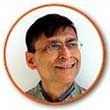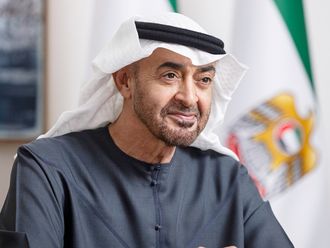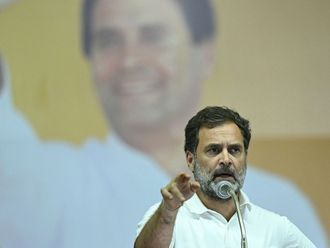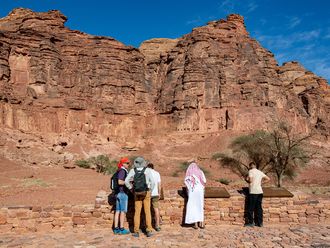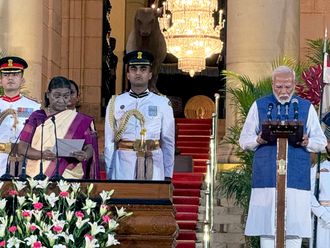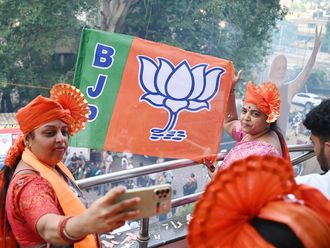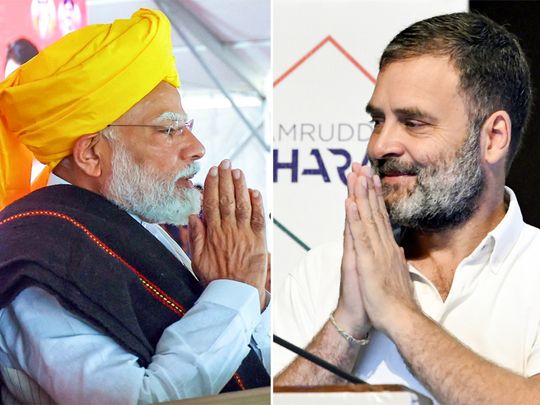
Nothing captures the mood of the nation during elections as much as the catchy slogans and watchwords flung by the jousting contestants at each other.
During these elections in India, for instance, we have heard the ruling Bharatiya Janata Party (BJP)’s “Is baar charsau paar” (this time let’s go past 400) being countered by “Is baar teensau haar” (this time around you’re losing 300)! Another interesting contrast is between Ram and Rozgaar — the Ram Temple vs unemployment.
As the election season hots up, the temperatures in most parts of the vast subcontinent have also crossed 40 degrees Celsius or 104 degrees Fahrenheit even in the shade. With nearly a billion people eligible to cast their ballots, this is the largest election in human history.
Voting in India’s 18th general elections commenced on April 19 and will conclude on June 4th. With the third phase completed earlier this week on Tuesday, the fate of 283 out of the 543 seats of the Lok Sabha has been sealed.
'Atmosphere of fear'
In Gandhinagar, the capital of his native state of Gujarat in western India, Prime Minister Narendra Modi was among the first who voted in one of the 93 constituencies in 11 states and union territories that went to the polls in this round.
The candidate he must have voted for is none other than his own number two, Amit Shah, the former president of the BJP and current Union Minister for Home Affairs. Surrounded by adoring supporters and signing autographs, Modi urged the people of India to participate enthusiastically in the great carnival of Indian democracy. He also warned them to mind the heat as the real — not just the political — temperatures soared throughout the country.
Charged by his opponents of making increasingly shrill and divisive anti-minority statements during his campaigns, Modi clarified earlier in an interview with a leading news channel, “They [the Opposition] would vilify us as anti-Muslim and then would claim they are friends of Muslims. They gained through this. That is why they created this atmosphere of fear. They were reaping benefits by fearmongering. But the Muslim community is aware now.”
Addressing Muslim voters directly on this rare occasion, Modi said, “Please introspect. Think. The country is progressing, if your community is feeling deprived, what’s the reason for it? Why didn’t you get the benefits of government schemes when Congress was in government?” Why, wondered his critics, was Modi himself addressing the Muslim question? Was it because of the lower than expected turnout, which many believe will harm the party in power more than the Opposition?
Dwindling support for ruling party?
When the elections were announced the same Opposition leaders and Modi critics accused the Election Commission of favouring the government by stretching out the voting over seven phases and 41 days during the hottest months of the year. Their contention was that prolonging the duration of the election would drain the Opposition of their resources, while the ruling party enjoyed an indisputable advantage.
The Opposition would have, it was earlier claimed, increasing difficulties in drawing their supporters to the voting stations during the soaring and searing temperatures. Now, it would seem, their tune has changed. They are alleging that lower turnout and voter fatigue indicate dwindling support for the ruling party.
Is the multiphase election working in favour or against the BJP? India’s Election Commission (EC), on its part, has asserted that the reason for conducting staggered elections is to ensure voter security and logistical efficiency, which given how massive an undertaking these elections are, is a perfectly valid reason, especially given India’s vast and diverse population and hugely varied geography and federal polity.
The multiphase election should, in theory, affect all political parties equally; however, larger and more established parties like the BJP have greater financial strength and organisational reach. This allows them to have a consistent presence, though it might also increase the duration for which they have to maintain campaign momentum.
Complex balance of power
The more important issue is psychological. In these elections, where there is no clearly discernible wave, a large number of uncommitted voters will wait till the last minute before casting their ballot.
In such a scenario, lack of a visibly rising tide of support for the BJP might suggest a waning enthusiasm among its supporters or the undecided masses. On the other hand, if Opposition supporters believe that the early phases show a done deal for the BJP, they may not bother to brave the heat in large numbers either.
In other words, the psychological advantage could go either way: it could sway undecided voters towards a party or motivate its supporter base to turn either defensive or complacent. Therefore, prolonged voting can be a double-edged sword, creating a bandwagon effect or galvanising the opposition.
What, then, is the current mood of the nation as India’s gargantuan 7-phase elections have crossed the halfway mark? We will not know the truth till the counting is done and dusted. But if one understands the Indian psyche over millennia, then it is likely that they do not like too much power concentrated in the hands of a single individual, however great or remarkable he or she may be.
When it comes to modern India, our democracy is safeguarded by the complex balance of power between the centre and the states, the regional capitals and the vast countryside, the pull and push between the three arms of the government, the legislature, executive, and the judiciary, and the immense diversity of the populace as well as the huge role of the largely free press, both mainstream and social media.
One extraordinary example of this is the release by India’s Supreme Court of Delhi Chief Minister Arvind Kejriwal from the judicial custody of the Enforcement Directorate precisely so that he can campaign for his party during the elections. As of now his rallies have attracted large and enthusiastic crowds. Whether this will translate into actual votes and seats remains to be seen.


